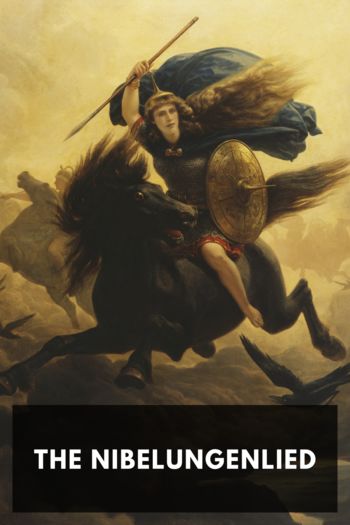The Trials of Radclyffe Hall, Diana Souhami [best sales books of all time .TXT] 📗

- Author: Diana Souhami
Book online «The Trials of Radclyffe Hall, Diana Souhami [best sales books of all time .TXT] 📗». Author Diana Souhami
Una could not deny or destroy John’s letters to Evguenia. Into them went the voice of desire that the government forbade, her complex fractured personality, her obsessive love, her intolerance of the will of others and, after many destructive years, her slow disillusion with how the world was.
John packed her suitcase each week and went to stay with Evguenia. It was no solution. The problem was about commitment and trust. And Una pursued her. She complained that she was compromised in the eyes of their Florentine friends and her cousins, the Tealdis. She went to mass at the Santa Trinità and prayed for John’s release from purgatory and her restoration to genius and honour. She phoned to let John know she had bruised her leg after falling over a tramline in the via dei Fossi. Life, she said, was now made up of lies and subterfuge ‘and I a lover of truth compelled to be a master dissembler’.
February was the ninth anniversary of the concordat between the Vatican and the Fascist party. At 18 Lungarno Acciaiuoli they hung out the papal flag. John and Una went to a Wagner concert at the Communale. They heard the music Hitler listened to while composing his speeches: the Meistersinger prelude, the Parsifal prelude, Das Rheingold.
In Florence there was elaborate road mending, decoration of the streets and preparations for a visit of the Duce and Hitler. The Commune fixed flag irons to John and Una’s windows. Una loved the beflagged streets, the swastikas, the black banners with the gold fasces, the heraldic devices on stathes tipped with gold spears and axe heads.
Their neighbour, Signor Lumbroso, was put in prison for three years. He had circulated an anonymous pamphlet protesting against Hitler’s visit and plan to annexe the Tyrol. ‘Horrified recipients rushed off with it to the Questora’, Una said. It was traced to Lumbroso’s typewriter. Una called him a fool or a knave and commended the Duce’s planned legislation against Jews: ‘they have been found to be at the back of all the centres of anti-fascism. The truth is that as citizens of any country they are impossible and cannot be trusted.’
John went with Evguenia to the station to see Hitler’s train pass through. With Una from the windows of their apartment she watched the cordons of soldiers and blackshirts, the military processions, the police on motor cycles and then, standing in a slow-moving car, the Duce and Hitler, the Duce ‘with the kindest most beautiful smile on his face’. She and Una yelled Duce Duce until they could yell no more.
In England Anthony Eden resigned from the Cabinet and was succeeded by Lord Halifax. Europe seemed in turmoil and on the edge of war. John too was in turmoil. She lost all confidence. She pleased neither Evguenia, Una nor herself. Her eyes tormented her and she walked with a limp. She had lower back pain and looked ill. She was tense when the phone rang and slept only with drugs.
Neither work nor love now anchored her. She believed she had sinned as when she was with Ladye and that the purgatory she felt herself to be in was payment due. ‘I would like to sleep for a very long time,’ she told Evguenia, ‘& then wake up near Ladye who was always so patient, so kind & so wise.’
In April Evguenia called in a state to see John, asked Una to leave them alone, then read out a letter from the French authorities. She was no longer eligible for French citizenship because she had left France within three years of making her application. John’s protection, her ignorance of French domiciliary law, her insistence that Evguenia live in a warm climate, had all conspired to spoil her chances. Miserable and contrite, John prayed in seven churches and to her relic of the true cross.
Evguenia went back to Paris in June, angry at what she saw as the destructive consequences of John’s control. She took and failed the entrance exam for the Sorbonne, then resumed nursing at the American Hospital so as not to lose her work permit. Though her pay was only thirty francs a day plus lunch, she stayed at the Hôtel Vouillemont in rue Boissy d’Anglas, wore pearls and designer suits and subsidised her Russian émigré friends.
John hated Florence without her. The flat which had seemed so perfect to Una was now too hot for John. The noise of an ice-making machine in a nearby restaurant stopped her working or sleeping. She was infected with restlessness. As in the previous year, she proposed that she and Una spend the summer in Rye. Evguenia would come for a holiday, then they would all winter in Florence. Evguenia could have her separate flat and do a course at the university.
For herself and Una she found a new flat at 8 via dei Bardi. It had marble floors, amazing views, an immense study and loggia. She took a lease on it from October on and wrote to Evguenia that she would adore it. It was so much the flat for a writer, she said, and wished they could live in it together. It was cheap because its owners, the Mortaras, were Jewish and hounded out of Italy.
Evguenia replied that she would not return to Italy in the winter and that never again would she live in the same town as Una. She intended to resit the entrance exam to the Sorbonne in November. She wanted her own home and a life for herself. Their relationship would have been different had John been free but she was not.





Comments (0)